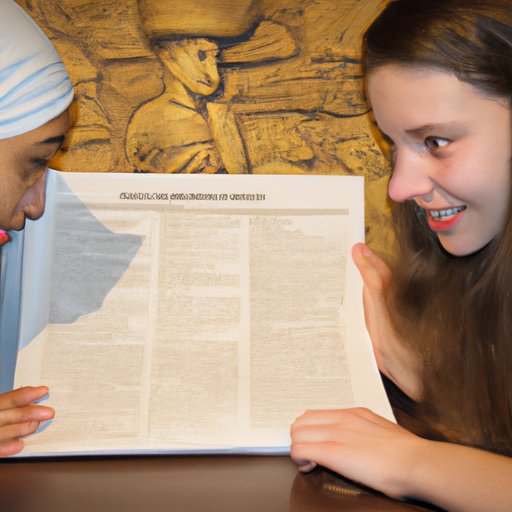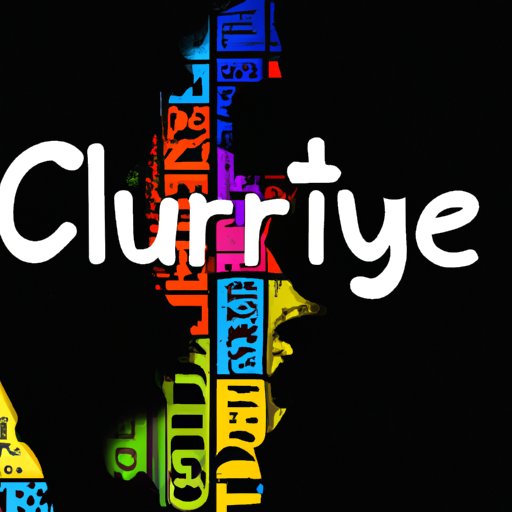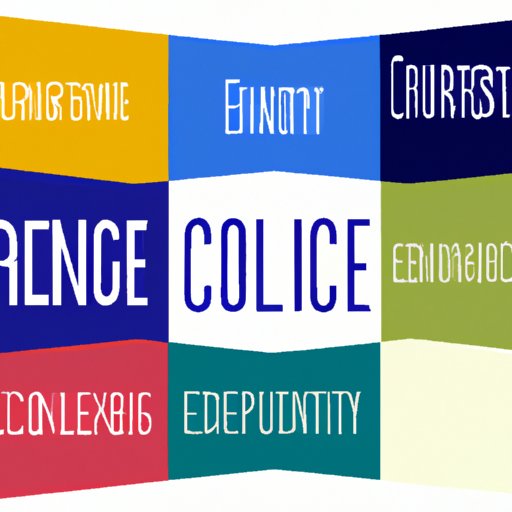Introduction
Cultural learning refers to the process of acquiring knowledge about different cultures, including their beliefs, values, traditions, customs, and norms. It’s an important part of developing an understanding of how people from different backgrounds interact with each other, as well as a way to foster respect for different cultures and build bridges between communities.
In this article, we’ll examine why it’s important to learn about other cultures and how it can benefit individuals, businesses, and countries. We’ll look at the historical significance of different cultures, the benefits of intercultural communication, the impact of cultural exchange on developing countries, and the value of cultural diversity in personal growth.

Examining the History of Different Cultures
Studying the history of different cultures is important for understanding our world today. Throughout history, cultures have interacted with each other, resulting in the spread of ideas, technologies, and trade. For example, the Silk Road was an important trade route that connected cultures from Europe and Asia, allowing them to exchange goods and ideas.
By examining the history of different cultures, we can gain a better understanding of how they have impacted our world today. It also helps us appreciate the contributions of different cultures and recognize their influence on our own culture. Learning about other cultures is a great way to gain a deeper appreciation for our own history.
Benefits of Intercultural Communication
Intercultural communication is an essential part of building relationships between different communities. When people from different cultures understand each other, they are more likely to cooperate and work together towards common goals. It also creates opportunities for mutual learning and understanding, which can lead to greater collaboration and cooperation.
Intercultural communication can also help to reduce conflicts and promote peace. By engaging in dialogue and exchanging views, people from different cultures can develop a better appreciation for each other’s perspectives. This can lead to increased understanding and tolerance, which is essential for maintaining peaceful coexistence.
Cultural Exchange and Developing Countries
Cultural exchange has many positive effects on businesses and economies. Companies that engage in international trade are often able to access new markets and expand their customer base. Cultural exchange can also open up opportunities for investment and joint ventures between companies from different countries.
Cultural exchange can also benefit developing countries by providing them with access to new ideas and technologies. By engaging in cultural exchange, developing countries can learn from the experiences of more developed countries and find new ways to improve their economies.

Cultural Diversity and Personal Growth
Cultural understanding can also have a positive impact on personal growth. Learning about different cultures can help us gain insight into our own culture and values. It can also give us a better appreciation for the diversity of human experience and teach us to be more tolerant and accepting of others.
Cultural learning can also help us become more empathetic and compassionate. By understanding different cultures and perspectives, we can better appreciate the struggles and challenges of people from different backgrounds. This can lead to greater empathy and understanding, which can help us become better people.
Conclusion
Learning about other cultures is essential for developing understanding and respect between different communities. It can help us gain a better appreciation for our own history, build bridges between communities, enhance international relations, and foster personal growth. By engaging in cultural learning, we can become better global citizens and create a more peaceful, just, and equitable world.
(Note: Is this article not meeting your expectations? Do you have knowledge or insights to share? Unlock new opportunities and expand your reach by joining our authors team. Click Registration to join us and share your expertise with our readers.)
